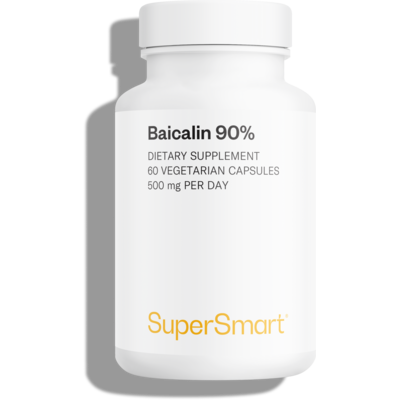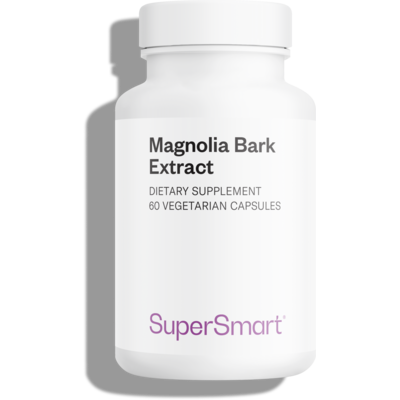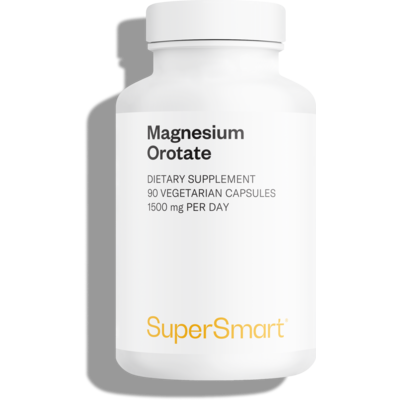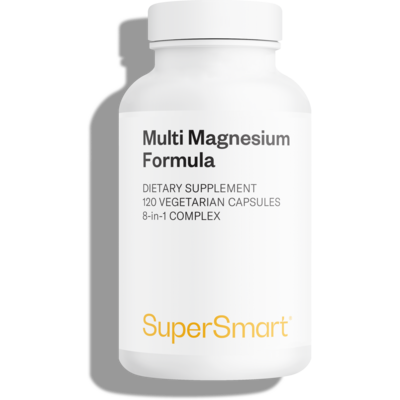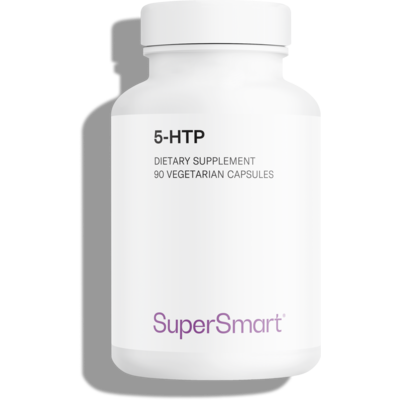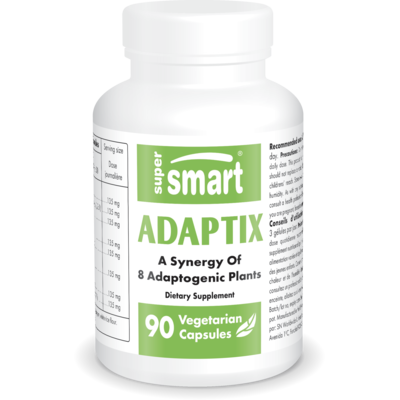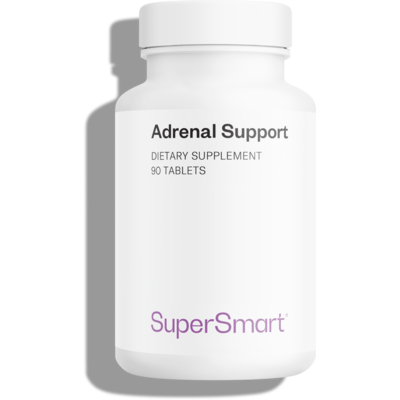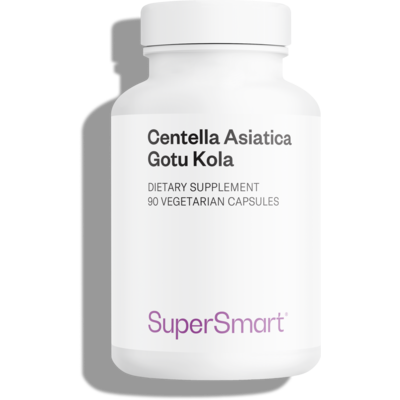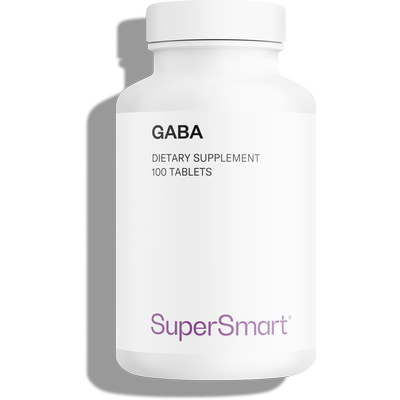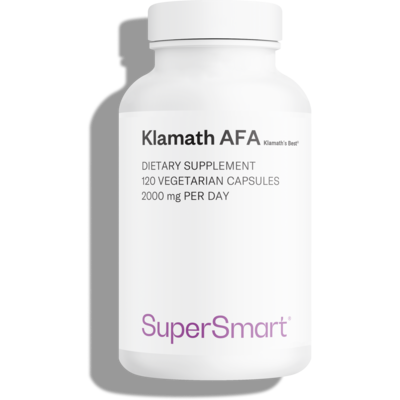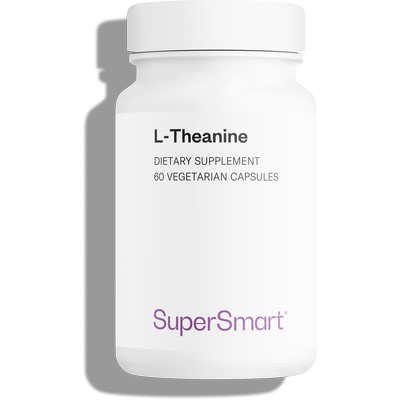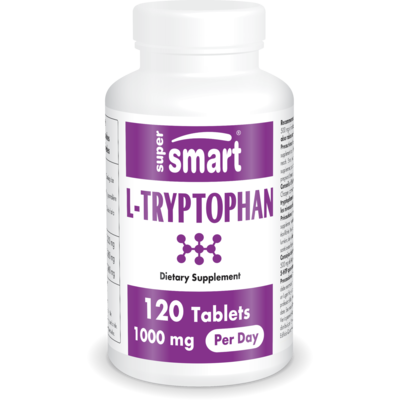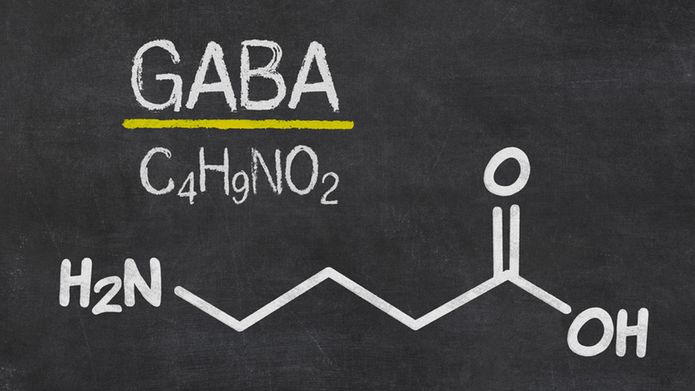What Supplements to Take for Mood Enhancement?*
St John’s Wort, a Powerful Herb for Mental Health Support *
St John’s Wort (Hypericum perforatum) is a staple in naturopathy. This small perennial plant, native to Europe and North Africa, has long been valued in traditional practices for its symbolic association with protection and balance.* Known also as the ‘fairy herb’ and the ‘herb with a thousand virtues’, it has been used for over 2,500 years for its traditional use in promoting relaxation and emotional well-being.*
St. John’s Wort has been traditionally used to support emotional well-being, promote a positive mindset, and help maintain overall vitality.*
It appears in numerous supplements such as St John’s Wort Extract, a premium product that effectively delivers the benefits of this WHO-, Commission E-, and ESCOP-approved plant.*
Aphanizomenon Flos-Aquae – A Blue-Green Microalga to Support a Brighter Mood*
If you are feeling low, you can consider Aphanizomenon flos-aquae (AFA). This blue-green algae, wild-harvested from Lake Klamath, is a great source of vitamin B12, which may support mood enhancement, as well as stress relief.* It also contains PEA (phenylethylamine – a precursor to dopamine), a compound associated with neurotransmitter activity.*
The possible mood-boosting properties of this blue-green algae are available in our specialized supplement Klamath AFA.*
Can Probiotics Support Emotional Well-Being?*
While we know that a balanced gut microbiota supports digestion and immunity, it may also play a role in mental health.* Beneficial microorganisms called probiotics may help maintain a healthy gut microbiota.*
Specific probiotic strains have been studied for their potential effects on mood: Bifidobacterium longum, Lactobacillus plantarum, Lactobacillus casei, and Lactobacillus salivarius (which can all be found in the multi-strain probiotic supplement Lactoxira).*
What Supplements are Ideal for Stress Relief?*
Tulsi and its Role in Resilience to Stress*
Known as the queen of herbs, holy basil or tulsi (Ocimum sanctum) has been used in traditional Ayurvedic practices for over 3,000 years. This adaptogenic herb is often associated with promoting physical and mental resilience.*
Tulsi is said to offer support for both physical and mental well-being.* It may aid in protecting cells from anxiety and stress.*
If you are looking for a stress-support supplement, selecting one that contains tulsi may promote relaxation and vitality.* Tulsi is often combined with other herbs like maca, rhodiola, and eleutherococcus. Adrenal Support blends these plants into a single comprehensive formula.*
How does Magnesium Help with Stress Management?*
Magnesium is widely recognized for its role in supporting relaxation and nervous system function.* The U.S. Food and Drug Administration (FDA) acknowledges its importance, stating: “Some scientific evidence suggests that diets with adequate magnesium may reduce the risk of high blood pressure (hypertension), a condition associated with many factors.”
During periods of stress, the body may use magnesium more rapidly, leading to a greater need for this essential mineral.* If you are considering magnesium supplementation, Magnesium Orotate provides a highly bioavailable form for optimal absorption.*
Which Supplements may Help Support Relaxation?
Ashwagandha: A Well-Studied Adaptogen for Stress Balance*
Hailing from India, ashwagandha (Withania somnifera) has been utilized for over 3,000 years in Ayurvedic medicine for its potential adaptogen properties.* Known as ‘Indian ginseng,’ it is considered for its possible ability to support relaxation and help the body adapt to everyday stressors.*
Ashwagandha may help promote relaxation and improve sleep quality.* It may also stabilize mood and enhance the body’s resistance to stressful situations, whether physical or psychological.*
Ashwagandha is commonly used as a calming dietary supplement for overall well-being.*
Other Beneficial Herbs for Relaxation and Mood Enhancement*
Several other medicinal plants, like schisandra and passiflora, are known for their potential ability to support calmness, resilience to stress, and restful sleep.*
Our natural supplement Stress Relief Formula combines 6 such plant extracts (including schisandra and passiflora) along with magnesium and vitamin B1, supporting normal nervous system function.*
Essential Oils for Relaxation*
Essential oils may also offer benefits for stress relief and relaxation.* Lavender essential oil, in particular, has been studied for its potential calming properties.*
You can enjoy the calming effects of various essential oils combined in supplements designed for relaxation.* One such oral formulation is Organic Relaxing Oil Blend, which combines several essential oils traditionally used for promoting relaxation.*
FAQ: Understanding Stress
What is Stress?
Stress is the body's natural response to external challenges or demands. It can be temporary (acute) or persist over time (chronic), affecting overall well-being.*
Why Consider Supplements for Stress Relief?*
Certain supplements contain nutrients and plant extracts that may help the body adapt to stress and support emotional balance.*
Traditional wellness practices have long valued botanicals such as hawthorn, St John’s Wort, passiflora, and ginseng for their calming effects.*
How can Stress be Managed?
When facing stressful situations, whether an exam or a work crisis, knowing how to manage your emotions is essential.
Deep breathing exercises are highly effective. Sit comfortably, relax your muscles, inhale for 3 seconds, and exhale for 6 seconds, releasing your stomach. Repeat this process 10 to 15 times.
Taking a moment to clear your mind by going for a walk, enjoying nature, or cycling can help break free from stress.
Meditation and relaxation techniques are also well-known for stress relief.* Consider setting aside 10 minutes every morning to meditate, accompanied by soft, calming music.
Which Foods are most Effective for Fighting Stress?*
A balanced diet may also contribute to stress management.* Here are some foods that may help you with stress relief:*
- Spinach: a natural source of vitamin B9, they may contribute to psychological well-being;*
- Avocados: packed with healthy fats and potassium, they may help support nervous system function;*
- Dried fruits: rich in magnesium, they may play a role in maintaining psychological balance;*
- Whole grains: oats, rice, and quinoa are excellent sources of vitamin B1, which may aid in stable mood;*
- Salmon: rich in omega-3 fatty acids, which are associated with stress management;*
- Eggs and dairy products: high in protein and B vitamins, they may contribute to relaxation and overall well-being;*
- Honey: a source of vitamins and minerals that may help promote relaxation;*
- Black tea: traditionally valued for its potential calming properties;*
- Chocolate: naturally rich in magnesium and known to support the release of feel-good hormones – simply avoid overindulgence*.
For additional support, explore our supplements for memory and concentration, as well as our sleep supplements.

